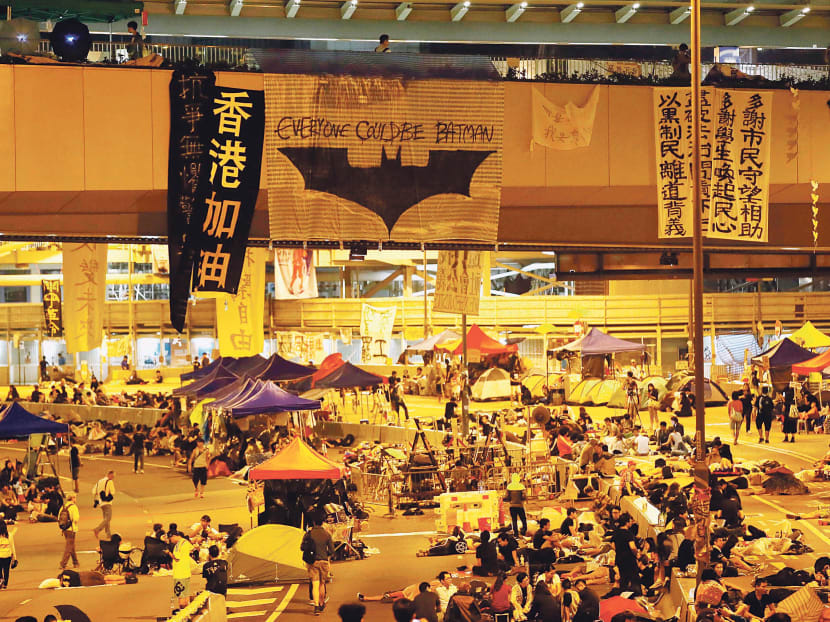Would true universal suffrage address Hong Kong’s problems?
I refer to the letter “HK student protesters right to fight for democracy” (Oct 6). It was arguably the umpteenth time I heard that democratic change was needed regardless of the circumstances.

The protests should be about how Beijing ensures that Hong Kong’s problems are competently addressed by the next Chief Executive. Photo: EPA
I refer to the letter “HK student protesters right to fight for democracy” (Oct 6). It was arguably the umpteenth time I heard that democratic change was needed regardless of the circumstances.
Firstly, could the writer clarify what contractual obligation Beijing reneged on? Article 45 of the Basic Law states: “The method for selecting the Chief Executive shall be specified in the light of the actual situation in the Hong Kong Special Administrative Region and in accordance with the principle of gradual and orderly progress. The ultimate aim is the selection of the Chief Executive by universal suffrage upon nomination by a broadly representative nominating committee in accordance with democratic procedures.” It is therefore the pro-democracy activists who want to change the Basic Law, not Beijing.
Secondly, as Foreign Affairs and Law Minister K Shanmugam pointed out (“Shanmugam: Beijing’s position on HK understandable”, Oct 6), Beijing’s perspective on the issue would be in the context of implications on the whole of China, not Hong Kong alone.
Mr Martin Jacques, author of global bestseller When China Rules The World, rightly pointed out in his book that Western countries experienced economic take-off without democracy. It is therefore unfair of the West to impose democratic values — universal suffrage and a multi-party system — on China, whose current gross domestic product per capita is about US$6,800 (S$8,690).
Thirdly, would true universal suffrage address Hong Kong’s problems? The Chinese leaders’ legitimacy is not based on winning a Western-style election, but on bringing stability and prosperity to China over the past 30 years.
Despite their mistakes, they have brought about the most significant human development in modern history in terms of both speed and scale. Data from the International Monetary Fund showed that in 1990, both India’s and China’s GDP per capita were US$400. By 2010, China’s was four times that of India. And India is the world’s largest democracy.
Last but not least, what problems are Hong Kong protesters trying to solve? The obvious ones are expensive housing, overcrowding and income inequality. The protests should then be about how Beijing goes about ensuring that Hong Kong’s problems are competently addressed by the next Chief Executive, if China insists he be selected within the current Basic Law framework.









